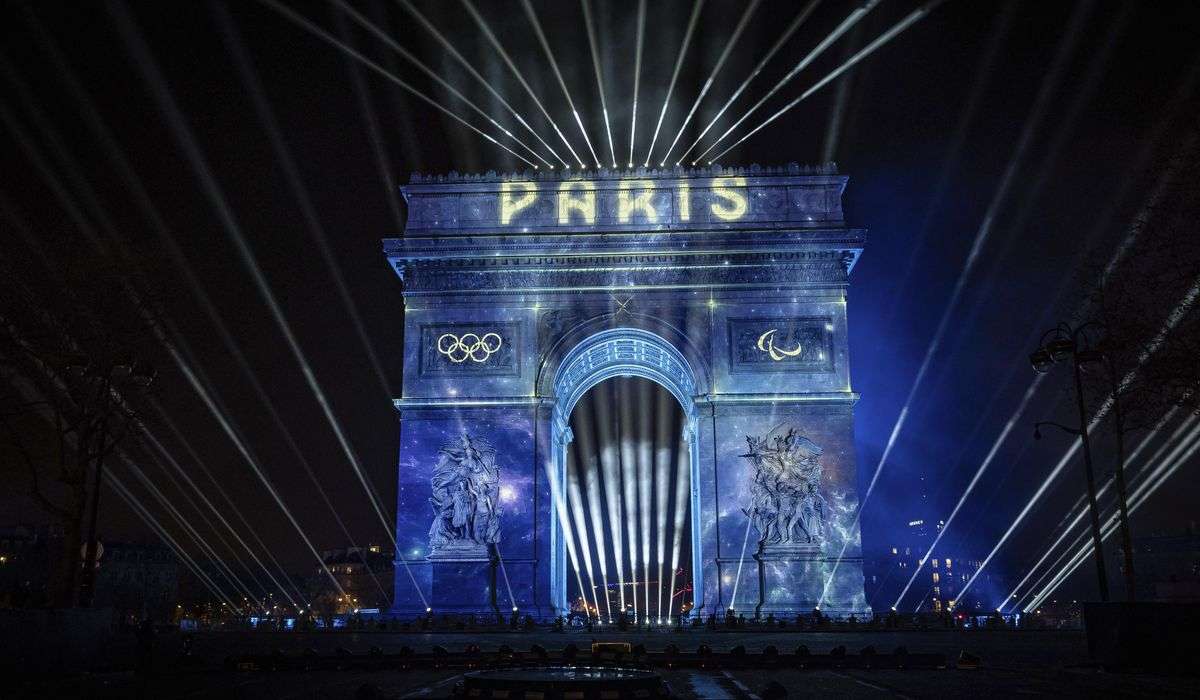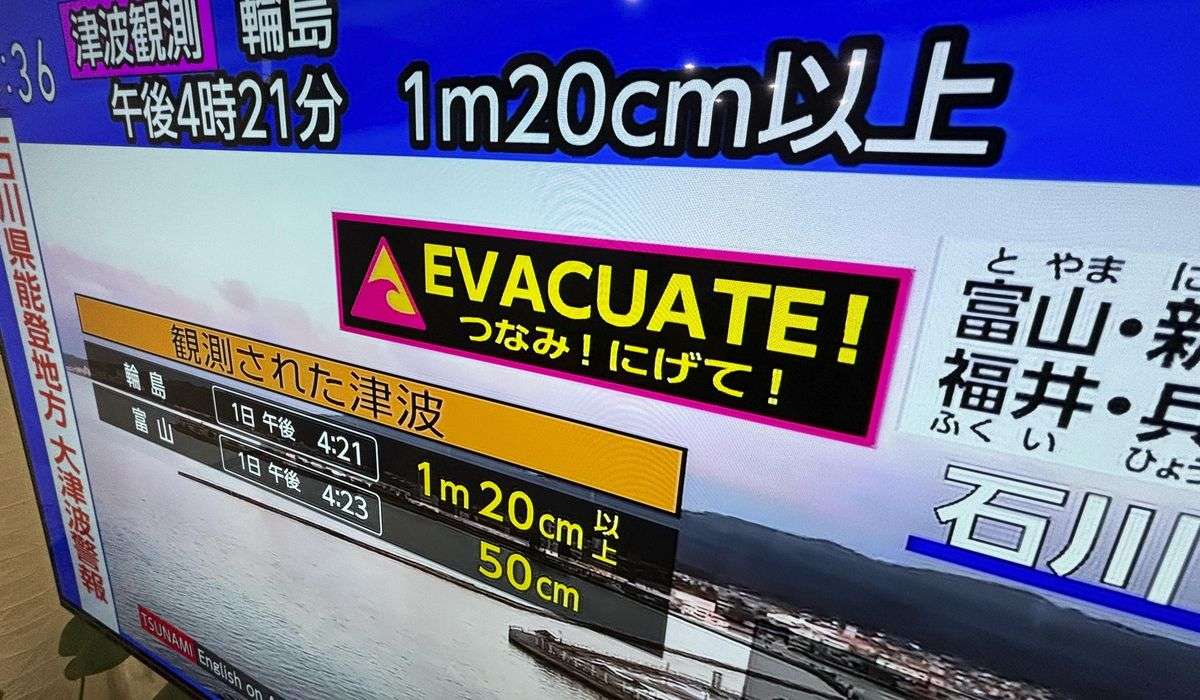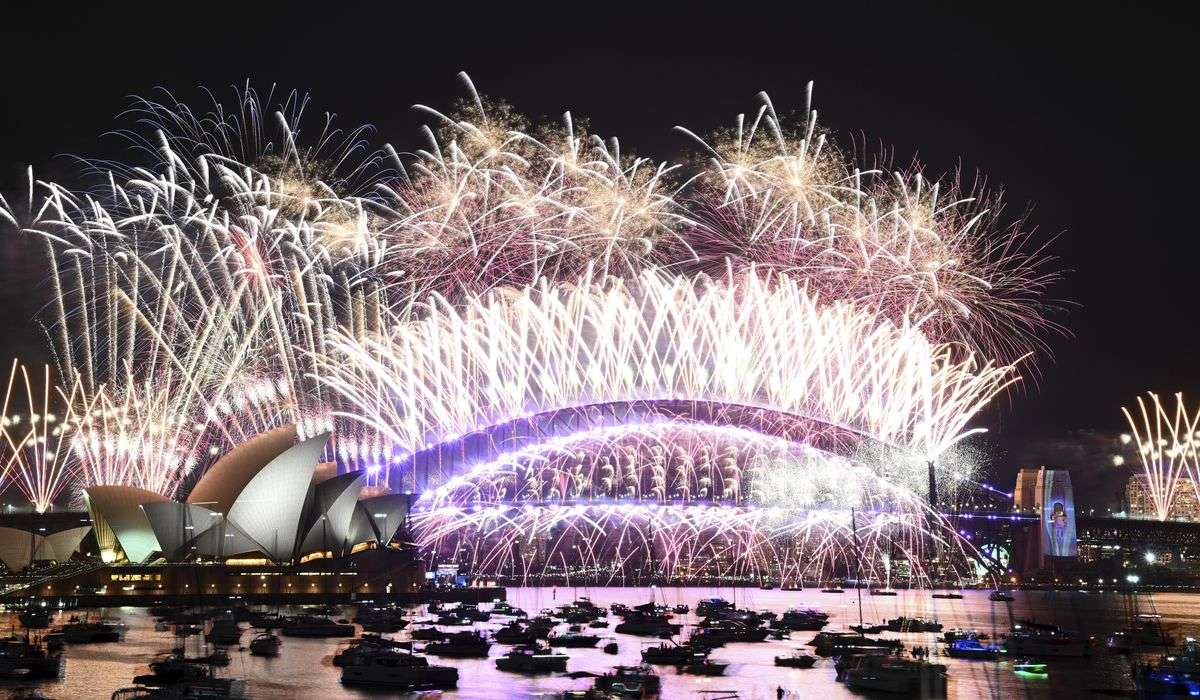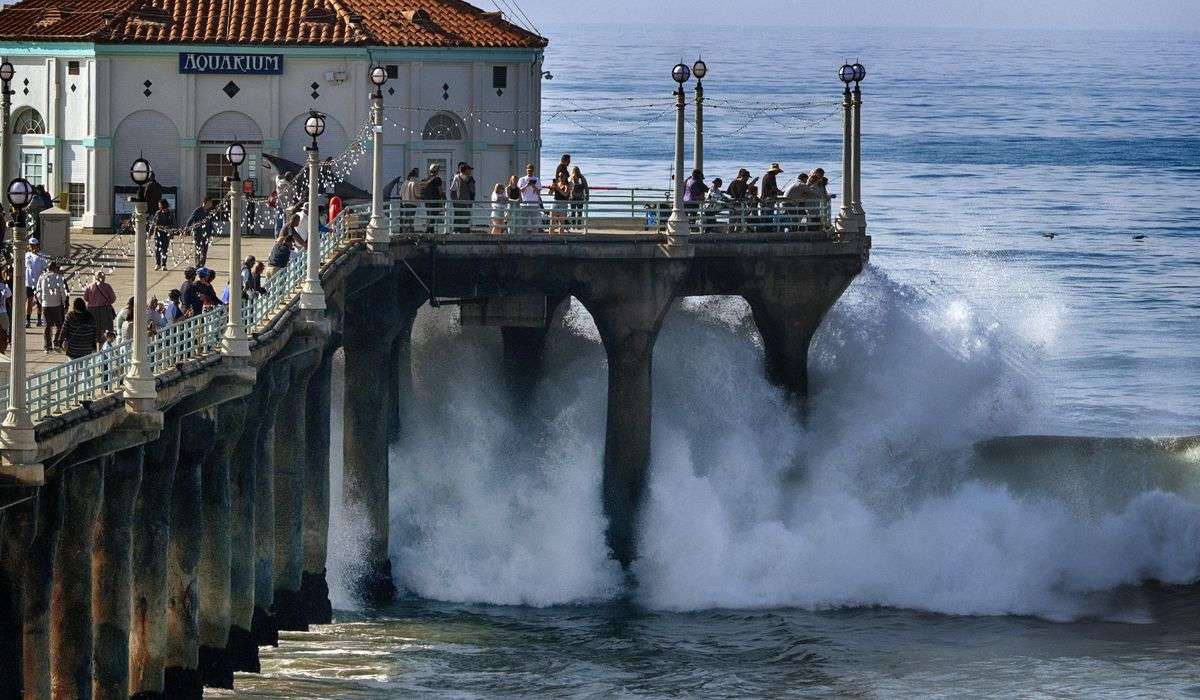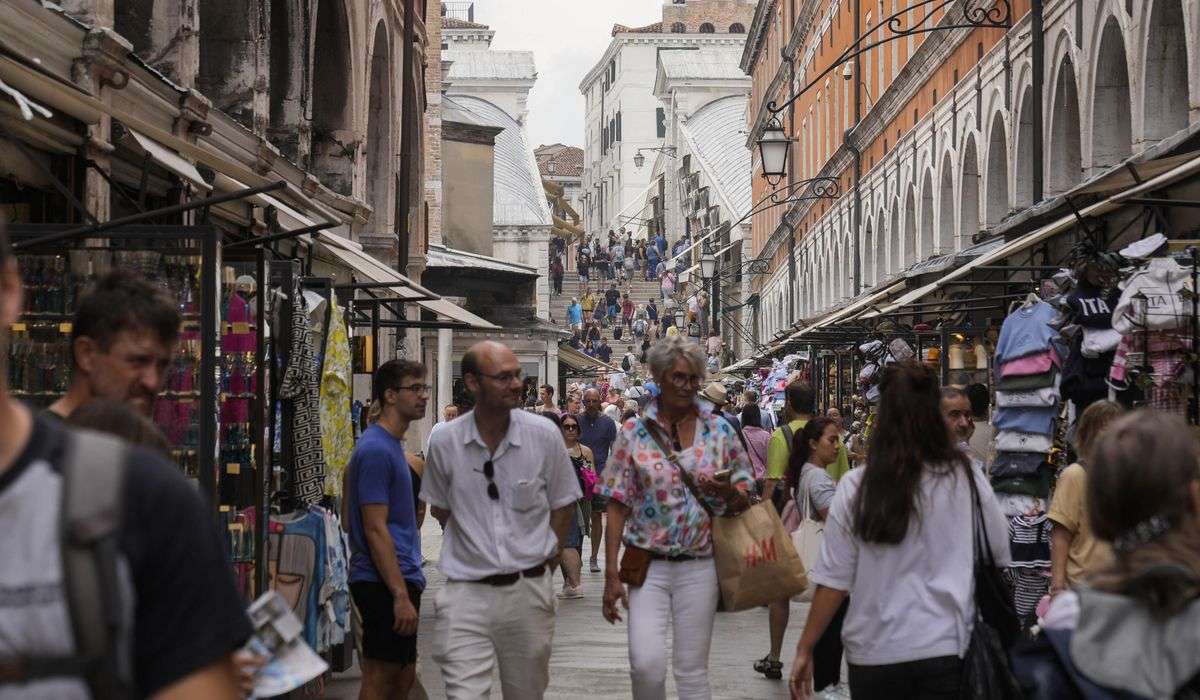For the first wave of vaccinated vacationers, venturing into the not-quite-open-world was quiet, cheaper — and a relief
By Ashley Fetters,
Phelan M. Ebenhack Associated Press
It’s hard to imagine a more emotionally taxing job than Sarah Hammerslag’s. As a child-life specialist at a hospital in Phoenix, Hammerslag, 27, explains medical procedures and diagnoses to kids. Some of those kids are patients themselves, while others are children of adult patients who are critically ill. It is rewarding work, but it can be draining, even in a normal year; in a pandemic, it could just about break you.
“We were caring for sicker people than we ever have, dealing with more deaths than we’re equipped to deal with,” Hammerslag said. The whole experience was “supremely terrifying.”
So as soon as Hammerslag got her second coronavirus vaccine dose in January, she knew what she wanted to do. Along with her best friend and her best friend’s husband (two fellow hospital workers) and their kids, she booked a vacation. “We looked at Aspen, Vail and Park City,” she said. Park City, Utah, especially, “was much cheaper than normal.”
For five days in February, Hammerslag and her friends skied during the day and relaxed in a rental at night. It wasn’t a normal winter ski trip: Restaurants were closed, social-distancing protocols were enforced. There was little to do besides skiing. “But I think all three of us felt like even if we just sit in the condo that we rented with the blinds open watching the snow fall, we’re going to be happy,” Hammerslag recalled. “Just because we just wanted that escape so badly.”
A month or so after Americans began receiving coronavirus vaccine doses in December, the first wave of fully vaccinated citizens (many of them health-care workers like Hammerslag) started doing what anyone would after the year they’d just had: going on vacation. Finally out from under a cloud of worry about falling seriously ill with covid-19, they ventured out and explored. Often they found the world outside still somewhat empty, quiet and slowed-down (sometimes in a pleasant way, sometimes not).
[Vaccines and summer travel: What families need to know]
The “vaccination vacations” these travelers have enjoyed in the past few months have almost certainly played a role in the ongoing recovery of the travel industry. The travel search site Kayak.com, for example, reported that flight bookings had finally started to steadily climb back up in the first three months of the year. Rosalind Smith, general manager of the nationwide travel agency Superior Cruise & Travel, noted March 31 that her firm had lately been working with a higher-than-usual volume of essential workers hoping to get out of town ASAP. She also said that the previous two weeks and the following one would be the heaviest travel weeks the firm had seen since the start of the pandemic.
Vacations like these, though — cheap, largely outdoorsy, tranquil but embarked upon with a sense of urgency — may soon fade into the past, a weird, dated memory of a surreal moment in history. On April 2, the Centers for Disease Control and Prevention made a formal proclamation that fully vaccinated people can travel without self-quarantining.
For some vaccinated Americans traveling in early 2021, the peace and quiet, and the relative scarcity of other travelers, has been part of the appeal of post-vaccine vacations. Erin Guttormson, a pediatric dentist based in Tucson, got her second dose Feb. 9. Two of her health-care-worker friends, fellow vaccinées, invited her along on a Thursday-to-Sunday stay at a resort in Cancún, Mexico. The three friends arrived Feb. 25 and spent most of their vacation lounging in the sunshine and enjoying spa treatments at the resort, which was restricted to partial capacity.
Nicholas Barnard
Erin Guttormson at the Hyatt Zilara in Cancún, Mexico, in February.
Sarah Hammerslag
Sarah Hammerslag with her friend Chrissy Heise at Park City Mountain in Utah in February.
“While it wasn’t an empty scenario, it wasn’t back to what I would say a full-capacity situation would be,” said Guttormson, 36. “We didn’t have to, like, make reservations at restaurants or anything. You could get in wherever and kind of do anything you wanted.” At night, the trio had dinner and drinks with two new friends: a married pair of physicians from South Dakota, themselves both recently vaccinated and badly in need of a vacation.
Like Hammerslag, Guttormson found that traveling when no one else is means dramatically lower prices. She paid for the Cancún vacation with credit card points, but when she booked another vacation in Hawaii for later this spring, her flights cost less than $400 round-trip.
Still, safely vacationing during a pandemic doesn’t necessarily mean a vacation from the pandemic. Escaping one’s own lockdown conditions isn’t the same as escaping lockdown, and for many, vacations haven’t felt quite like the carefree getaways they imagined.
Jason Anderson, a 41-year-old victim advocate who lives in Denver, lucked into a leftover at a vaccine site and completed his immunization process in February. At the end of March, he and a vaccinated friend packed their bags and flew to Walt Disney World.
[Doctors advise against traveling immediately after your vaccination. Here’s why.]
The Disney parks, Anderson said, were livelier than he had expected; he was somewhat surprised at how long the lines for rides were in Month 12 of a pandemic. But other parts of the experience weren’t quite what people go to Disney expecting. The parks’ beloved dining scene had largely been collapsed into an app-based meal-pickup service, and a battalion of Disney characters wandered around carrying signs reminding guests to wear their masks over their nose and mouth.
Lisa Butler, a therapist based in Chicago, was dismayed to find that when she finally got the vaccine and visited some family in Little Rock in mid-March, her DoubleTree hotel had suspended many of its guest services. To Butler, being able to order room service, sit at the bar and have her bed made daily are “the best part” of staying at a hotel. When she suddenly had to request new towels, “that was a little disconcerting to me. I was like, what is this?” Butler said with a laugh. She has made peace with the fact that there will also be no room service at the resort where she will be staying on her upcoming 52nd-birthday trip to Playa Del Carmen, Mexico. But she looks forward to being able to dine poolside, unmasked.
As these stories illustrate, vaccination vacationers have sought out destinations where they can spend a lot of time outdoors — largely because indoor spaces are still under so many more restrictions by comparison. Smith, of Superior Cruise & Travel, noted that while a number of countries still have closed borders because of the pandemic, warm-weather domestic destinations and nearby tropical nations that are open to U.S. travelers have been especially popular lately. Mexico and Hawaii are two of the agency’s most in-demand vacation spots at the moment, Smith said. (Smith herself has been working from Playa Del Carmen since the first day of the year.)
Smith has also seen increased activity in Cabo San Lucas and Puerto Rico. According to a statement from Brad Dean, CEO of Discover Puerto Rico, hotel occupancy at the end of March was 16 percent higher than pre-pandemic, and demand for independent rentals is starting to outpace even 2019, “which was a record-setting year for Puerto Rico.”
The days of the vaccination vacation as Guttormson and Hammerslag have known it, though — the lone, rare vaccinated traveler venturing out into a world that’s still partly shut down — are numbered. Soon enough, popular travel destinations will probably be bursting at the seams with post-pandemic visitors. But the relief and relaxation that come from taking a vacation after a hard, stressful, grief-stricken year aren’t going anywhere; indeed, they have been a reliable outcome of even the most pandemic-dampened trips.
For Hammerslag, a vacation to literally anywhere might have done the trick: “A few days without beeping monitors, without calling ‘code blues’ ” was enough, she said. And Anderson, who spoke to The Washington Post just a few days after returning from Orlando, said Disney World under covid-19 protocols was “still the happiest place on Earth.”
Please NotePotential travelers should take local and national public health directives regarding the pandemic into consideration before planning any trips. Travel health notice information can be found on the Centers for Disease Control and Prevention’s interactive map showing travel recommendations by destination and the CDC’s travel health notice webpage.
More from Travel:
‘Vaccine passports’ are on the way, but developing them won’t be easy
How covid-19-related travel restrictions are complicating the once-simple road trip
New River Gorge: America’s newest national park is one of West Virginia’s hidden gems
The coronavirus pandemic has disrupted travel domestically and around the world. You will find the latest developments on The Post’s live blog at www.washingtonpost.com/coronavirus

